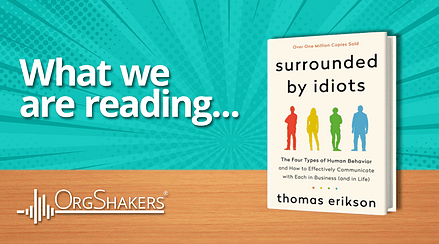Menu

Mastering Time and Soft Skills: A Dual Imperative for Modern Leadership
In today’s fast-paced, hybrid, and AI-augmented workplace, the most effective leaders are not just those who work the hardest – but those who manage their time and relationships with strategic intent. For HR professionals guiding leadership development, the convergence of time mastery and soft skill cultivation is no longer optional – it’s essential.
The Time Dilemma: From Reactive to Proactive Leadership
Time is the most finite resource in an executive’s toolkit. A 2025 Harvard Business Review study of 30 CEOs revealed a stark misalignment between where leaders think they spend their time and where they actually do. Most time was consumed by meetings, board interactions, and investor relations, with little left for customers or frontline employees. This disconnect not only hampers productivity but also signals misplaced priorities across the organization.
To counteract this, leaders must shift from a reactive to a proactive time management model. The “proact/react” ratio is a useful diagnostic: Are you initiating strategic conversations, or constantly responding to crises?
Leaders who operate in “proact mode” carve out time for reflection, vision-setting, and meaningful engagement with their teams. One practical tactic is the “thinking hour” – a weekly, interruption-free block of time dedicated to strategic thought. Former U.S. Senator George Mitchell famously protected this hour, allowing interruptions only from his wife or the President.
Delegation is another cornerstone of proactive leadership. Trusting a capable team not only frees up executive bandwidth but also empowers others to grow. As HBR notes, the most effective CEOs amplify their impact through indirect influence – by shaping culture, strategy, and talent – not by micromanaging.
The Hidden Cost of Poor Time Management
Poor time management doesn’t just affect the leader – it cascades down the organization. According to a 2025 SHRM survey, 84% of employees believe poorly trained managers create unnecessary work and stress, with time mismanagement being a major culprit.
Common pitfalls include overloading teams without understanding their capacity, last-minute requests, and lack of availability for support or feedback. These behaviors erode trust, morale, and performance.
The Soft Skills That Sustain Leadership
While time management is foundational, it must be paired with emotional intelligence and interpersonal finesse. Forbes’ 2024 and 2025 leadership research highlights five critical soft skills for modern leaders: emotional intelligence (EQ), change management, resilience, tech literacy, and creativity. These are not just “nice to have” – they are directly linked to employee engagement, innovation, and organizational agility.
Emotional intelligence, in particular, has emerged as a defining trait of successful leaders. A 2024 study published in Revista de Gestão Social e Ambiental found that leaders with high EQ foster more positive organizational cultures and higher job satisfaction. EQ encompasses self-awareness, empathy, relationship management, and the ability to communicate with authenticity.
Other essential soft skills include:
- Active Listening: Going beyond hearing words to understanding intent and emotion.
- Self-Compassion: Embracing vulnerability and imperfection, which fosters psychological safety.
- Empathy: Understanding others’ perspectives to build trust and loyalty.
- Honesty and Vulnerability: Being transparent about challenges and inviting collaboration.
- Curiosity and Intuition: Navigating ambiguity with open-mindedness and gut-informed judgment.
These skills are not innate – they can be developed through intentional practice, coaching, and feedback. Journaling, for instance, is a powerful tool for reflection and emotional growth. It helps leaders process experiences, identify patterns, and cultivate the self-awareness needed to lead with clarity and compassion.
Building a Culture of Leadership at All Levels
Leadership is not confined to the C-suite. As one article aptly notes, “everyone can be a leader at their own level.” HR professionals should encourage leadership behaviors across the organization by promoting feedback loops, mentorship, and continuous learning. Tools like performance management platforms can facilitate real-time feedback, helping individuals track their growth in both hard and soft skills.
Conclusion: The HR Imperative
For HR leaders, the message is clear: developing great leaders requires a dual focus on time mastery and emotional intelligence. Equip your executives with the tools to manage their calendars with intention, and the coaching to lead with empathy, honesty, and resilience. In doing so, you’ll not only enhance individual performance – you’ll shape a culture of trust, agility, and sustainable success.
If you need further guidance on how to start tackling your time, you can get in touch with us here.



